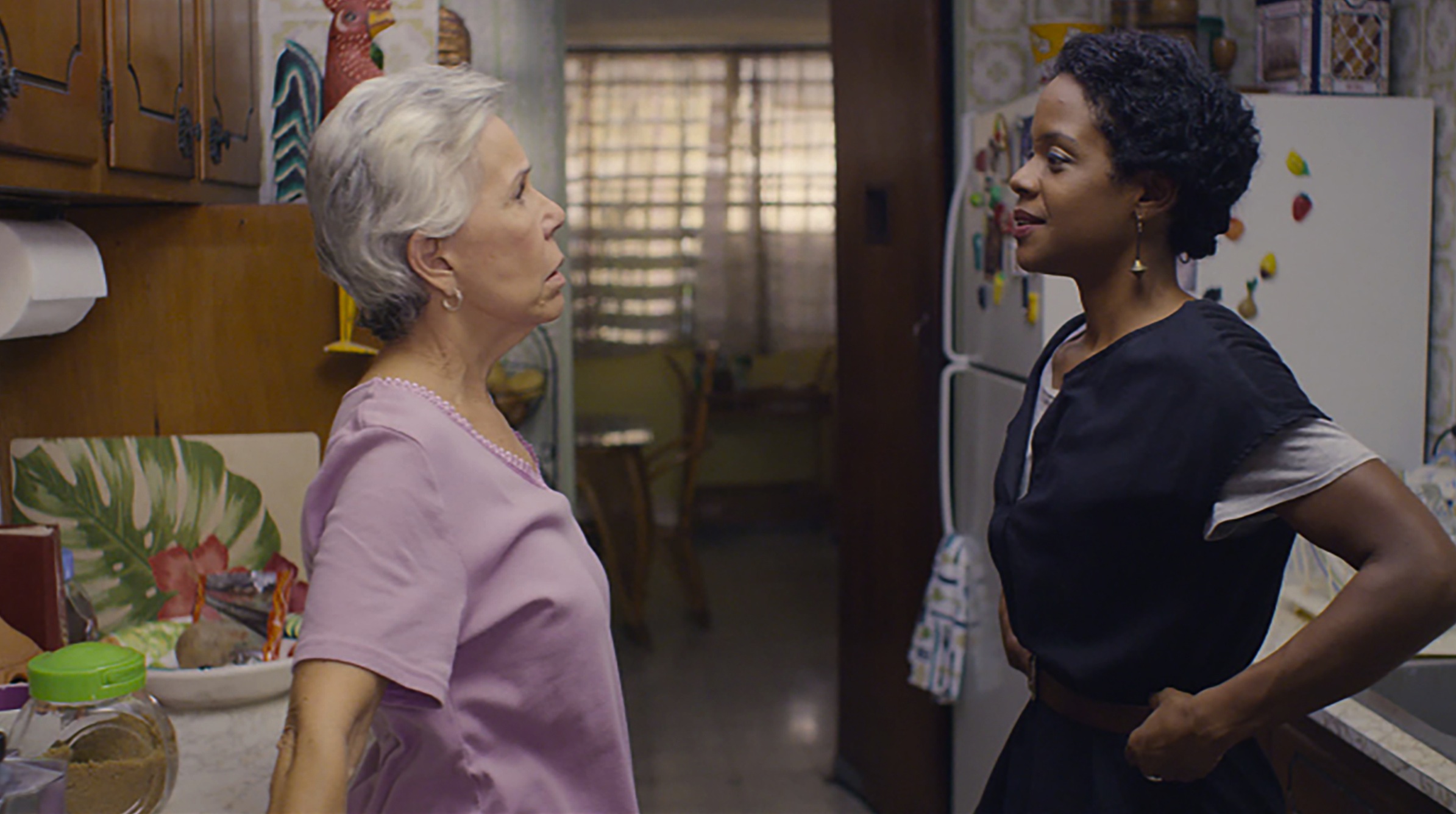Purposely challenging the Eurocentric beauty standards that blatantly plague Latin America on and off screen, Puerto Rican director Marisol Gómez-Mouakad set out to tell the story of an empowered Afro-Latina fighting colorism at home in her debut feature Angélica.
The most recent stop on the movie’s successful festival run, which started with its world premiere at the Curaçao Film Festival last year, was at the Bentonville Film Festival in Arkansas, an event founded by Oscar winner Geena Davis to champion storytelling by women and diverse creators.
Living in New York City and dreaming of becoming a fashion designer, Angélica (Michelle Nonó) is a Puerto Rican woman whose father is Afro-Latino, while her mother, Ángeles (played by veteran actress Johanna Rosaly), has much lighter skin. In the US, Angélica encounters microaggressions at work and from her boyfriend José, who fetishizes her blackness.
Upon her return to Puerto Rico to see her ill father, the protagonist is confronted once again with her mother’s abrasive comments about her appearance, her dark complexion, and her career choice – one that she doesn’t think is suitable for a woman of color. Fed up with submissively accepting the erosion of her identity, Angélica defies her family’s retrograde beliefs. In turn, her conviction to pursue a career in fashion becomes stronger.

One central battle is her mother’s emphasis on pointing out her curly hair as an inherent flaw. When Angélica decides to stop straightening it and let it exist in its beautifully natural form, Ángeles amps up her constant efforts to pressure her into “fixing it.” Going against the concept of “pelo malo,” which is the idea that kinky hair is a bad trait, becomes one of character’s most graciously rebellious moves.
“Unfortunately since in Latin America we don’t talk about this subject enough, we haven’t dealt with it,” Gómez-Mouakad told Remezcla during a conversation following the screening in Bentonville. Casual colorism is prevalent in Latin American culture, the director notes, but people refuse to see their comments as having a negative connotation. The filmmaker portrays the absence of Afro-Latino representation in the region through a myriad of examples, from the dolls that Angélica has in her childhood room, all of which are blond with the exception of one, and the light-skinned talent on Spanish-language television shows.
“If you turn on the TV in Latin America what faces do you see? You don’t see representation of the multiracial people that exists in Latin America, and it’s not only against Afro-descendants, but towards indigenous people as well. If you see them on screen they are playing maids or servants, but never in the lead roles,” she explained.
Because of this, it was a demanding undertaking to search for an Afro-Latina actress to star in Angélica. “It’s not that there are women with the character’s complexion that want to be actresses, but the problem is that they become frustrated because no one hires them. It becomes very difficult to them.” As a testament to the director’s search of the right actress, Nonó captured the complicated plight of the role in a subtle performance as a woman facing her loved ones to assert her right to live her truth.
Gómez-Mouakad hopes to be able to show the film in Puerto Rico soon. Her plan was to present it at home last October, but because of Hurricane Maria that plan had to be postponed until further notice.







